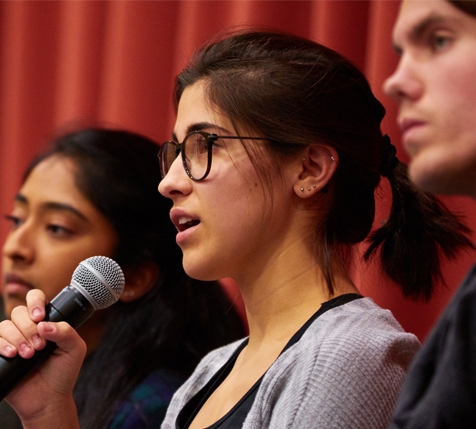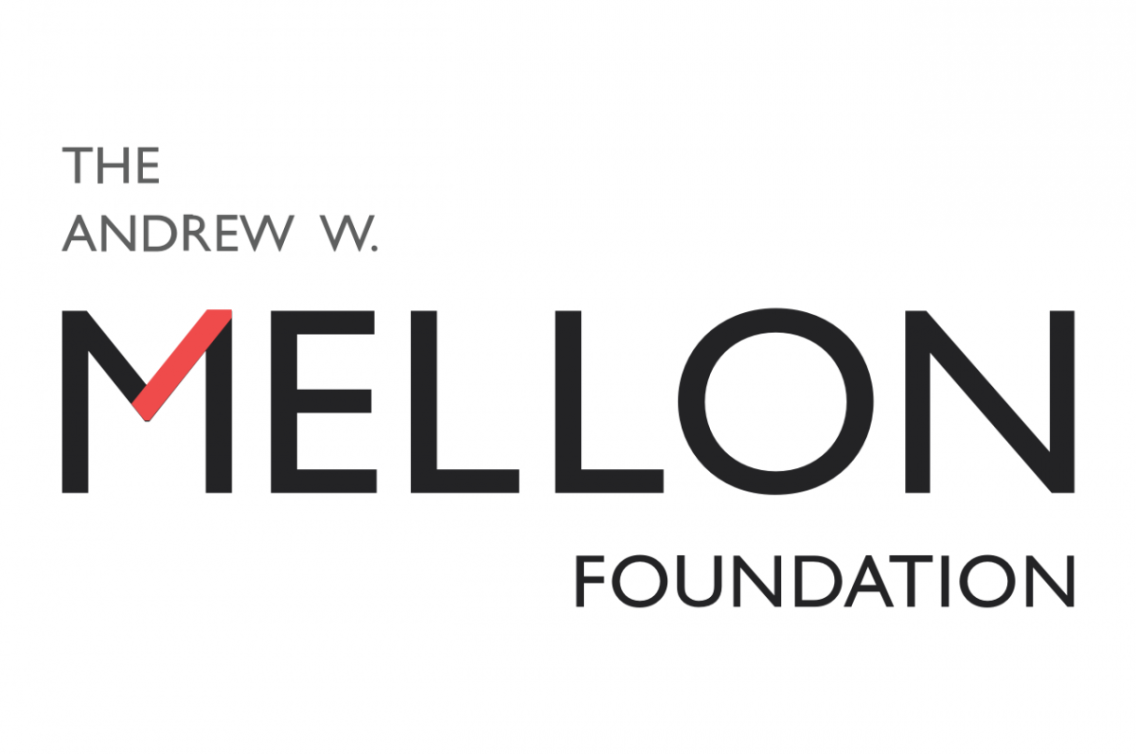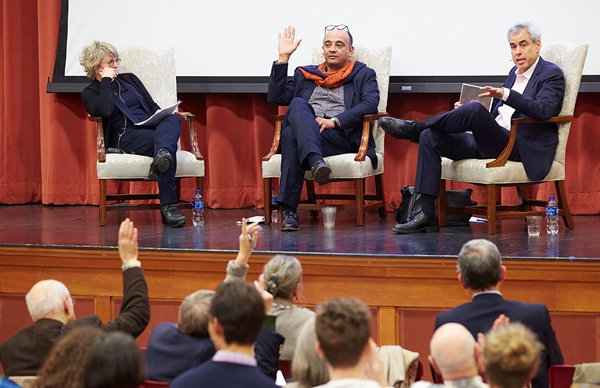Middlebury Receives Mellon Foundation Grant to Build Excellence in Public Discourse

MIDDLEBURY, Vt. – Middlebury has received an $800,000 grant from the Andrew W. Mellon Foundation in support of a new project titled “Listening and Speaking in Public Spheres.” The three-year grant will help Middlebury develop a faculty training program to produce new curricular and cocurricular options for students to “engage significant, even controversial, topics on campus, in the community, and online.” The grant will also support a collaboration with the Vermont Humanities Council (VHC) to expand the topic of public discourse beyond the Middlebury community to a statewide audience.
“We are thrilled and grateful for this support from the Mellon Foundation,” said President Laurie Patton. “Building a robust and inclusive public sphere is one of the defining issues of our time, and is the first part of our new vision statement. I believe developing skill in communicating across differences must be a part of every Middlebury student’s experience, and every faculty and staff member’s professional approach in supporting our educational mission.”
The Mellon grant will directly support the first of three transformational and foundational goals identified in Middlebury’s strategic planning process, “Envisioning Middlebury,” which states that Middlebury will become “a center for effective and inclusive dialogue.”
“The timing of this grant is ideal as we begin to develop strategies across all Middlebury operations to achieve our goals, which are crucial for a 21st-century global environment and yet rooted in the ideals of classical liberal learning,” said Patton. “This program will engage our faculty, students, and staff, and have a marked impact on our curriculum.”
One of the primary activities covered by the grant will be a series of professional development workshops offered to faculty, particularly in courses that emphasize listening and speaking in their scholarly content.
“We hope to work with faculty instructors already teaching courses on the media, language and communication, and rhetoric,” said Sarah Stroup, associate professor of political science and the faculty director of the Mellon grant. “We will also work with faculty to develop the tools for listening and speaking in the classroom to teach any type of content, from lab sciences to the arts.”

The grant calls for a six-person faculty workshop each semester over the three-year life of the grant, resulting in 36 trained faculty members by the conclusion of the project. Faculty workshops will be led by outside consultants and focus on developing skills and pedagogical approaches oriented around speaking, listening, difficult topics, and digital platforms.
The ability to understand another point of view and to engage in productive disagreements is essential for both Middlebury’s educational project and for public life beyond the college, says Stroup. “We hope to achieve measurable differences in the depth and breadth of campus discussions, which should result in better learning and more effective civic and political engagement.
“Our ambitious and accomplished students are already engaged in a wide array of affinity groups and in civic and political causes beyond our campus,” Stroup continued. “They reflect the culture of the hardworking faculty, staff, and administrators that are good at moving fast and getting many things done. Yet our culture of busy-ness does not always prepare us for the slow and difficult process of communicating across differences. In and out of the classroom, we hope to equip students with a sense of agency and responsibility while developing the tools for effective dialogue.”

As part of its Critical Conversations series, Middlebury invited public intellectuals Jill LePore, Kwame Anthony Appiah, and Jonathan Haidt to be panelists for a discussion titled “Building a Robust Public Sphere” earlier this year.
The grant will also support work being done by the Vermont Humanities Council, including its “First Wednesdays” series, a monthly statewide speaker series hosted at nine different sites around the state, as well as financial support to enhance its speakers bureau. Stroup expects the collaboration with VHC will provide ways for students and community members to discuss a wide array of topics from a diverse set of viewpoints.
The idea of civil discourse has evolved dramatically in recent years, shaped by the growing role of digital platforms and social media, and increased tensions around ideas of free speech and inclusivity. Responding to these rapid changes, a committee of six faculty and administrators researched and proposed the Mellon grant. Committee members were James C. Davis (religion); Shawna Shapiro (writing program and linguistics); Sarah Stroup (political science); Dana Yeaton (theater); Timothy Spears, vice president for academic development; and Amy Collier, associate provost for digital learning.
“One of the chief aims of this program is to prepare students for engaging the world beyond Middlebury—hence the emphasis on ‘public spheres,’” said Spears, the principal investigator for the Mellon grant. “We also recognize that no single entity constitutes the public sphere, that we all increasingly navigate multiple worlds through a variety of means—by speaking, writing, and via social media. We were quite frank in our proposal that exercising one’s right to speak these days is no easy thing, that the political environment can be a deterrent to speaking in and across these public spheres. We believe the program we are developing with Mellon’s support will give our students the orientation they need to succeed in this rapidly changing landscape.”
President Patton has emphasized the need for a “robust and inclusive public sphere” since she first arrived on campus in 2015. In her inaugural address, she foreshadowed the goals of the new Mellon-funded program: “And so allow me to describe a future. Here is my thought for you, today, and in the years to come: I challenge us to have more and better arguments, with greater respect, stronger resilience, and deeper wisdom.”
Reporting by Stephen Diehl; Photos by Todd Balfour

